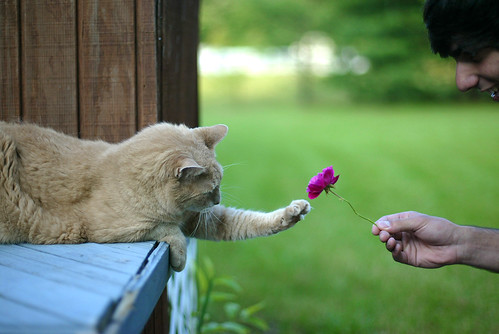
By Jovan Johnson
Wonderful you have a new kitten! Now its time for your kittens litter box training and believe me you and her will be really happy once she's trained. Rest assured litter box training is going to be really easy for you and your kitten I promise. Most kittens naturally feel the urge to dig in litter as early as 4 weeks, but here our some 10 tips that will make litter box training for cats much easier....
Tip 1: Do not interfere with your kitten while she in the litter box, it will only make your cat develop an aversion to using it.
Tip 2: Be patient! Instinct will guide your kitten to the litter box.
Tip 3: Make sure you place the litter box in a quiet, non traffic location that your cat has access to at all times.
Tip 4: Make sure you always keep their litter box clean. Scoop daily
Tip 5: Don't let litter sit for more than a week. Change the litter as often as possible and you and your cat will be happy
Tip 6: Do not use any strong cleaners in the litter box; it may make your kitten not want to go potty
Tip 7: Place your kitten in their litter box when they awake and after a meal
Tip 8: When your kitten start to go potty on their own, praise her lavishly to reinforce the fact that she doing a good job
Tip 9: Do not, I mean do not move your kittens litter box unless absolutely necessary and when doing so move it gradually.
Tip 10: Last but not least, if you have more than one kitten, make sure you have a litter box for each cat.
More cat owner tips
WAIT! Don't put your cat up for adoption just yet. A well crafted training plain is all you need to a well behaved cat. FIND OUT HOW - click here
Article Source: http://EzineArticles.com/?expert=Jovan_Johnson





